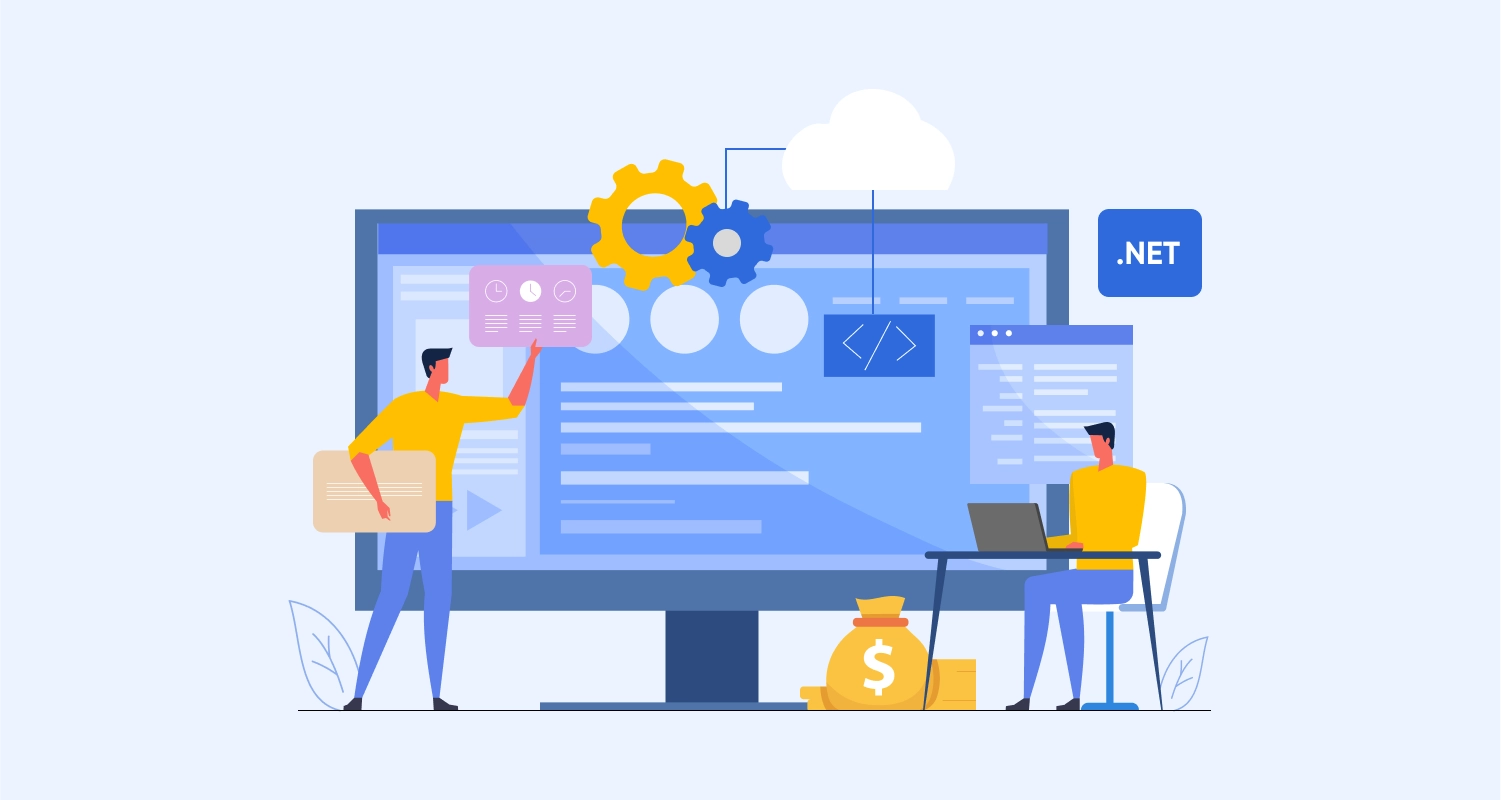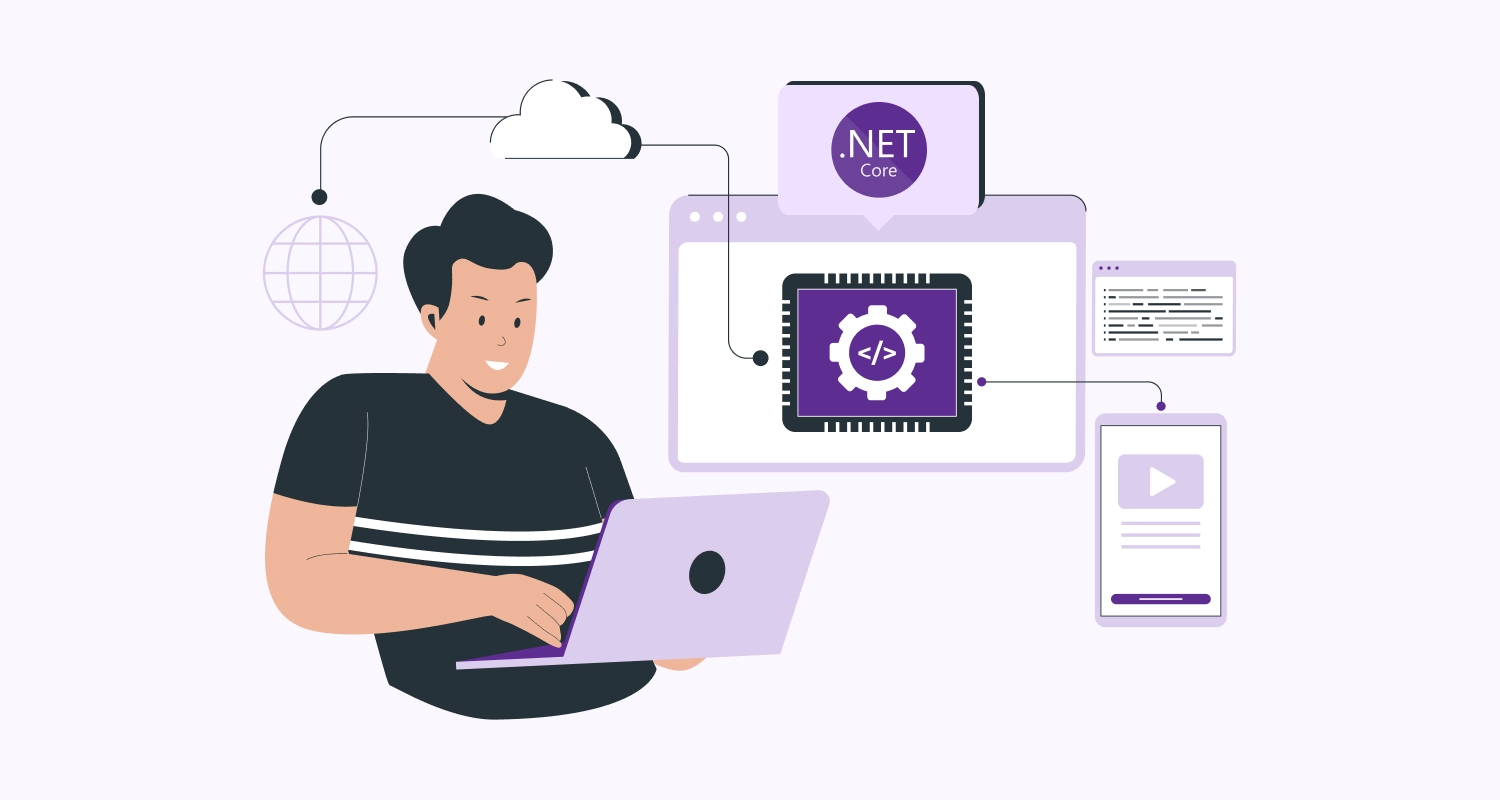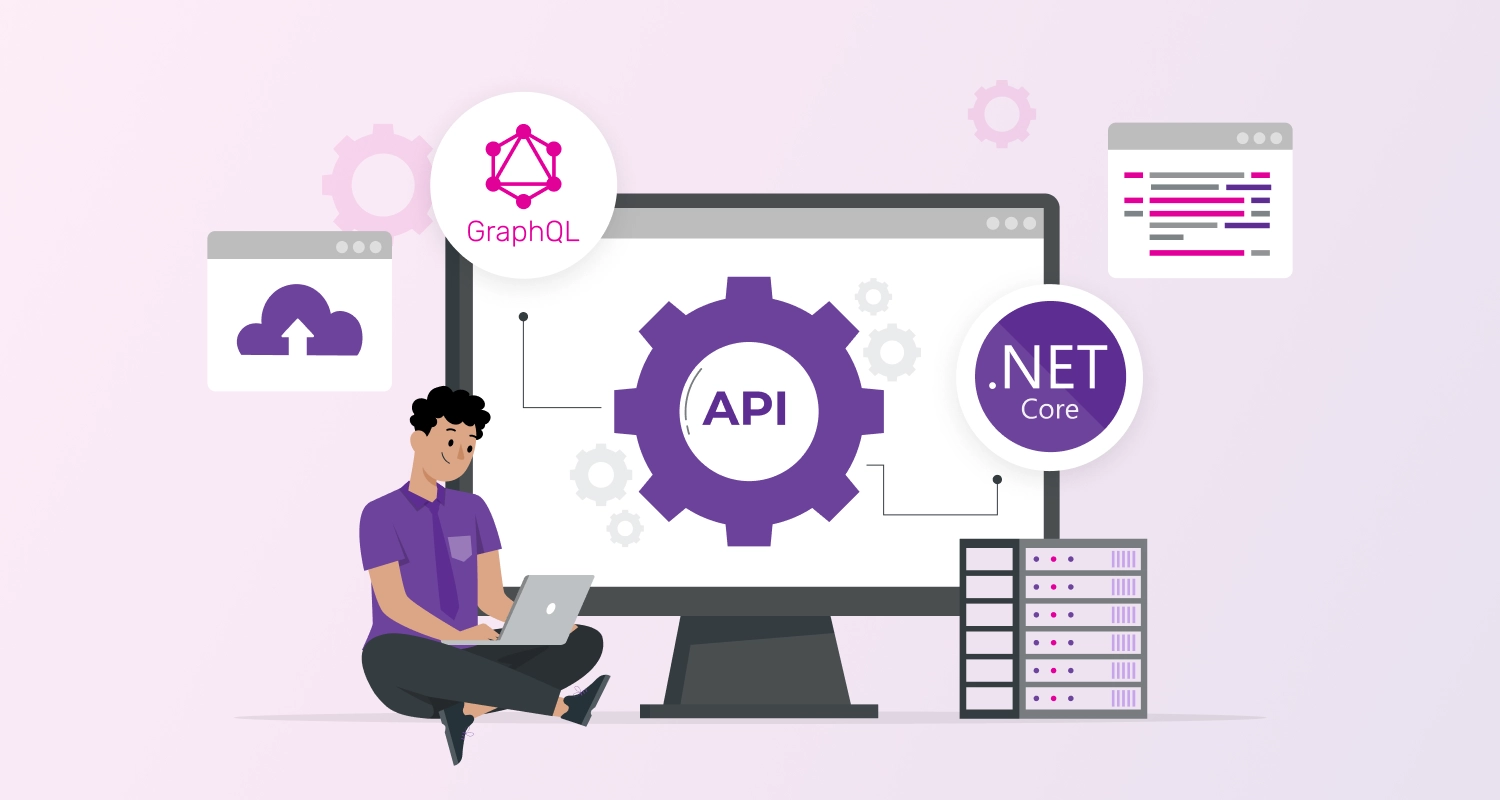Artificial intelligence has been a buzzword in the revolutionary market and has been chosen among developers in recent years due to its rapid growth. It is a novel technique that is a subset of knowledge engineering. It enables businesses and their apps to promote thinking and problem-solving.
Developers may use artificial intelligence to build web API with ASP.NET core for any platform, including mobile, desktop, and web. Artificial intelligence has created a niche for itself.
Every firm strives to boost its information technology system by integrating AI in .NET core and other corporate apps and solutions. Hire ASP.NET core developer to help you understand the importance and need of AI application integration. Here, we will go over the basics of .NET, why you should combine it with AI, what use cases it suits most, and how you can connect AI with .NET apps. This blog reveals all you need about AI integration in ASP.Net core applications.
Reasons to Implement the Integration
The analysis of AI and ML must take into account business skills, performance, and productivity. Integrating AI and ML with .NET apps allows businesses to customize experiences, automate and optimize workflows, and gain new insights into their data. All of these factors can help firms increase productivity and efficiency. Here are a few reasons why .NET apps should use AI and ML:
- Process Automation
- Predictive
- Personalization, and
- Advanced analytics
How AI Enhances ASP.NET Core Applications: Top Use Cases
AI can be used in .NET core web apps to add intelligent features and improve user experiences. The following are some common use cases for AI in .NET core applications:
Natural Language Processing(NLP):
AI integration in ASP.Net core applications allows NLP to detect and replicate human spoken words and text. NLP approaches are used to evaluate text input from the users. Businesses use NLP to analyze language identification, entity recognition, text summary, and chatbots.
Image and Video Recognition:
Organizations use cutting-edge technologies to enhance image and video recognition capabilities. AI algorithms may be trained to recognize and classify photos. You may add image recognition capabilities to your .NET Core web apps to create features such as image-based search, object identification, and facial recognition.
Recommendation Systems:
AI systems examine user behavior and preferences to make personalized recommendations. It uses collaborative filtering or content-based filtering approaches to recommend items, articles, or other relevant material to consumers. These recommendations ASP.NET Core with AI models can be trained and used in your .NET Core web apps.
Voice Recognition and Speech-To-Text:
Well-trained AI algorithms convert voice recognition to text enabling the feature of voice commands, and transcription services. To provide these features in your ASP.Net core application you can integrate Azure speech service or Google Cloud speech-to-text.
Chatbots and Virtual Assistance:
AI-powered chatbots and virtual assistants can improve user interaction by automating responses and tasks using natural language input. It also helps to save money. Companies would not need to hire support executives.
Step-by-Step Guide to Integrating AI into .NET Applications
As an open-source framework, .NET Core allows developers to keep modularity within the development environment, which simplifies the code. Furthermore, it permits the easy inclusion of framework libraries and other components required to improve the app development environment.
To integrate AI and Machine Learning app development services into .NET applications, follow the steps outlined below:
Step 1: Discover and define the use case.
To begin the AI and ML implementation, you should first identify the project’s purpose and goals. It will provide you with a clear understanding of the proper use case for your .NET application. For example, you’ll know whether you require machine learning or artificial intelligence to build chatbots, virtual assistants, image processing, decision-making, automation, or anything else.
Step 2: Gather Relevant Data from Multiple Sources
A machine learning algorithm must be taught before it can be deployed in the real world. As a result, a large number of datasheets must be collected and organized for the ML application. Furthermore, ensure that the facts and other information in datasets are relevant, timely, and accurate.
Step 3: Choose AI Libraries ASP.NET Core
Select the right AI models that are compatible with ASP.Net core suitable as per your use case. ONNX, TensorFlow, ML .NET, PyTorch, and CNTK are the most popular libraries/frameworks among .NET developers. However, before selecting any of them, make sure you have adequate hardware and software resources to avoid problems.
Step 4: Build AI Apps ASP.NET Core and Train Them
Begin training an AI or ML model after you’ve chosen a library or framework. During training, offer massive inputs to the models and save their results. Examine the results and change the data as needed to obtain expected forecasts. In addition, create the .NET program, test it on multiple devices, and ensure it functions properly.
Step 5: AI Models ASP.NET Core Integration
Once your AI/ML model has completed its training and you have received the expected results, incorporate it into your .NET application. An appropriate API (Application Programming Interface) allows you to easily communicate between an AI/ML model and a .NET program. Furthermore, before deploying it, ensure that it is compatible, functional, and performs well.
Step 6: Constantly Monitor, Update, and Train
Monitor the health, performance, and speed of the .NET program regularly after deployment. If you uncover any problems or gaps, patch them before they are exploited. Also, to keep your model up to date and produce superior results, give it fresh data regularly.

Best AI Frameworks and Libraries for ASP.NET Core Development
AI libraries and frameworks are essential parts of AI software development services that aid in streamlining business processes. This software may help businesses reduce human work, save time and money, improve accuracy, and automate tasks and many other tasks.
TensorFlow and PyTorch are two well-known AI frameworks that have been used in the development. With the help of these frameworks, developers create ML models with ease. Other AI libraries ASP.NET Core include Keras and Scikit-Learn. These libraries offer a collection of APIs to create applications from anywhere in between with the entire codebase.

TensorFlow
Created by Google, TensorFlow is an open framework. It is known for its versatility and scalability which helps AI applications. TensorFlow is a huge and active community with the best practices for .NET core development to learn. It also allows for distribution across multiple platforms. However, TensorFlow’s learning curve might be severe for novices.
Keras
Keras is an open-source API for neural networks with TensorFlow. It is simple to use and understand to make it easy for deep learning models. Furthermore, it is suitable for rapid prototyping. You should keep in mind that Keras may be lacking in advanced functionality for complicated applications.
PyTorch
PyTorch is another open-source ML framework for research due to its dynamic computational graph. It helps in prototyping and experimenting. Furthermore, it is bolstered by expanding community support, with products such as PyTorch based on the library. PyTorch has quickly become one of the most popular frameworks, effective in a variety of applications.
OpenAI
For various AI activities, such as creating graphics or turning text into speech, OpenAI offers a variety of tools. It is renowned for its potent GPT language models, which can comprehend and produce human-like text. The user-friendly platform of OpenAI makes it simpler for anyone to incorporate cutting-edge AI into their projects, particularly when developing AI assistants or products that communicate with users in natural language. Note that a premium subscription was necessary for a few of the features.
Conclusion
The tools and technology used to construct apps are always changing along with the development industry. AI integration in ASP.Net core applications is one of the newest developments in software development. Businesses may easily navigate and use these cutting-edge technologies by utilizing the experience of AI consulting services. The advantages of improved performance, task automation, workflow optimization, and predictive insights are unlocked by this strategic partnership. Providing organizations and users with individualized experiences and real-time data analysis guarantees efficiency.
If you need professional assistance for AI integration in ASP.Net core applications, partner with advanced AI solutions with a .Net core company that provides the best ASP.NET core development services.
AI can contribute to increased productivity by removing the need for human data entry and freeing up resources to concentrate on other tasks. AI can assist in developing a more effective and productive .NET application that will propel company growth.
FAQs for AI Integration in ASP.Net Core Applications
What are the benefits of integrating AI in ASP.NET Core applications?
AI integration ASP.NET Core applications come with benefits like improvised decision-making, automated tasks, an increase in operational efficiency, and performing complex data analysis. Using cross-platform capabilities of ASP.NET Core AI applications is also beneficial.
What are some common use cases for AI in ASP.NET Core?
Chatbots for customers, predictive analysis, fraud detection, image processing, face recognition, NLP, and other automated tasks are some of the common AI use cases in ASP.NET core. These use cases all make use of machine learning models to improve application functionality and user experience within a web application framework such as ASP.NET Core.
How do I choose the right AI approach for my ASP.NET Core application?
The right AI approach for your ASP.Net core applications is based on various factors like accuracy, real-time data, complexities, and tools available within the .Net ecosystem such as Azure, and third-party libraries. Once you identify the problem you can choose the right approach with AI.
Can I use cloud-based AI services with ASP.NET Core?
Yes, AI services with ASP.Net core like Microsoft Azure, Google Cloud, and Amazon Web Services are useful for integration. With features like image recognition, natural language processing, and predictive analytics, you can integrate cloud-based AI services in your web development with ASP.NET Core applications.







